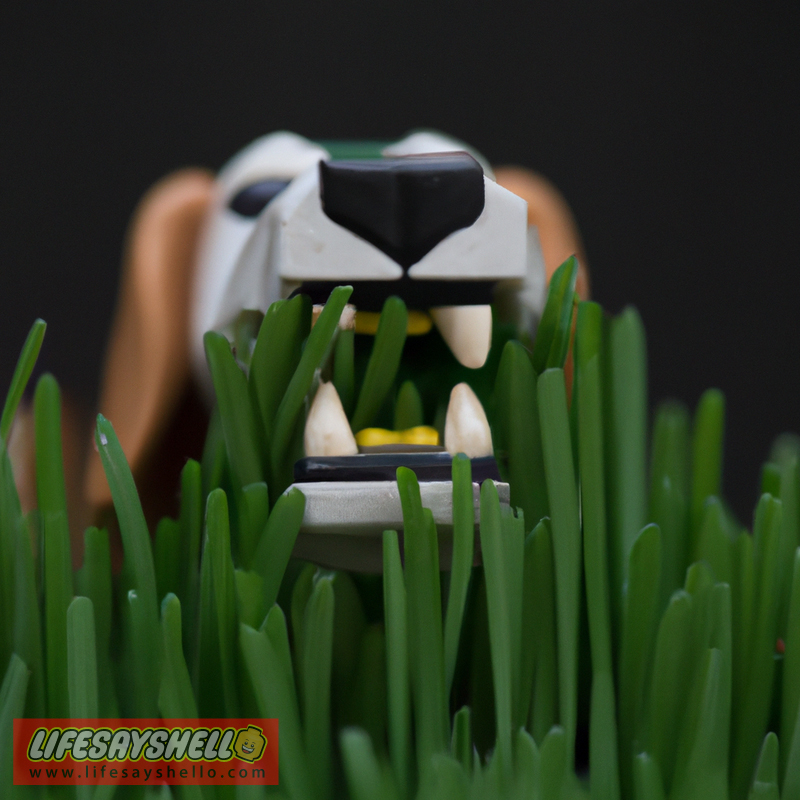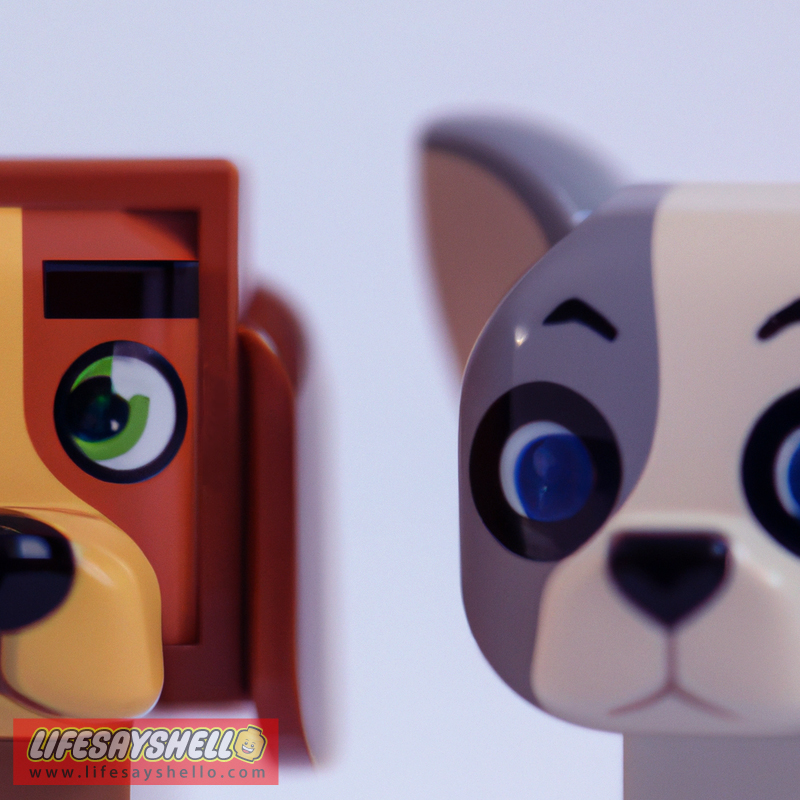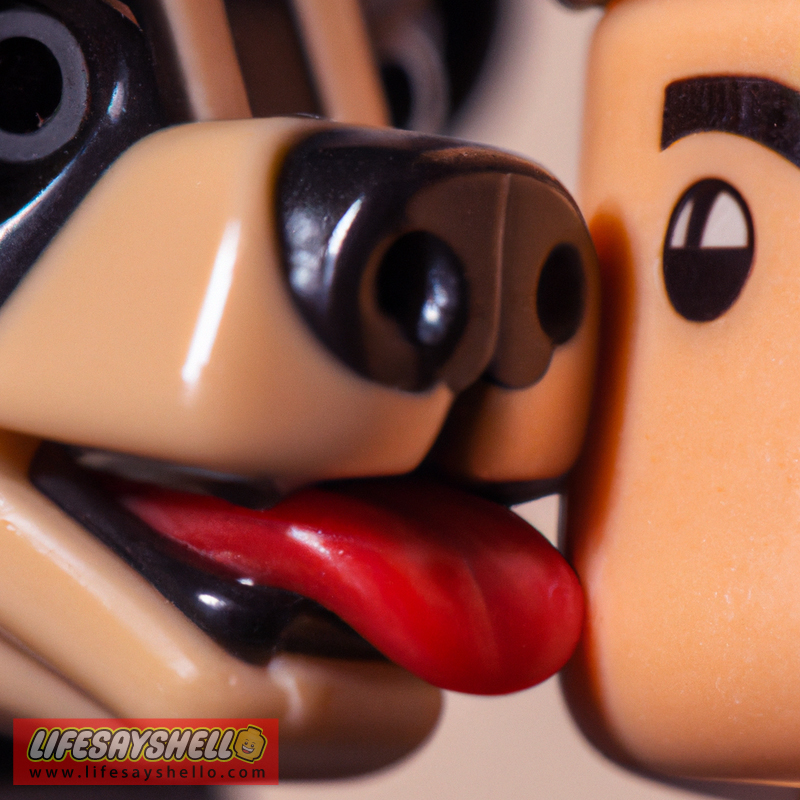Why Is My Dog Eating Grass? The Top 5 Reasons Explained

Is your dog obsessively munching on your lawn? Do you keep catching your pup snacking on grass during walks? If so, you're definitely not alone. Many dog owners deal with pups who seem to love eating grass.
But why do dogs eat grass? Is it normal behavior or something you should worry about?
As a dog owner and lover, I was curious about this grass-eating phenomenon too. So I did some digging to uncover the top reasons behind this common canine behavior.
In this blog post, I'll share the 5 main reasons dogs eat grass plus tips to curb the behavior if it becomes excessive. Let's get started!
Why Dogs Eat Grass: 5 Common Causes
Here are the top 5 reasons your dog may be grazing on grass, according to veterinarians and animal experts:
1. Upset Stomach
If your dog scarfs down grass quickly and then vomits soon afterward, it likely has an upset stomach or nausea.
Eating grass can induce vomiting in dogs, allowing them to clear their stomach. So they may resort to grass-eating when they're not feeling well.
Some signs your pup is eating grass to relieve stomach issues:
- They consume grass rapidly in large amounts
- Vomiting occurs shortly after grazing
- Loss of appetite or lethargy along with grass-eating
According to Dr. Jerry Klein, Chief Veterinary Officer for the American Kennel Club (AKC), dogs sometimes won’t eat their regular food when their stomach is upset. But they'll still nibble on grass or houseplants.
So if you notice these symptoms along with obsessive grass-eating, it’s worth getting your dog checked out by a vet. They can examine your pup for potential gastrointestinal issues or other health problems.
2. Nutritional Deficiency
Another common reason for grass-grazing is a lack of proper nutrition in your dog's diet.
Dogs naturally crave fiber as part of a healthy, balanced diet. So if your pup’s food is deficient in fiber or other nutrients, it may turn to lush grass as a supplement.
This is especially true for dogs eating low-quality commercial dog foods. Since grass contains lots of fiber, dogs seek it out to fill the void when their diet is lacking.
Certain medical conditions that interfere with your dog’s ability to properly digest or absorb nutrients can also trigger grass-eating. These include:
- Exocrine pancreatic insufficiency (EPI)
- Inflammatory bowel disease (IBD)
- Intestinal parasites
So if your dog is ravenously eating grass, consider switching to a high-quality, high-fiber dog food. Or add some fiber-rich canned pumpkin or steamed veggies to give them more roughage.
You should also take your pup to the vet for a checkup. Blood tests can determine if an underlying health issue is causing nutritional deficiencies.
3. Boredom or Anxiety
For some dogs, inappropriate behaviors like grass-eating stem from boredom or anxiety.
Dogs are highly social animals that crave attention and interaction with people and other pets. When your dog feels neglected or under-stimulated, they may resort to grass-grazing to get your attention.
The ASPCA notes that dogs who are left alone for long periods with little exercise or mental stimulation are more likely to develop unwanted behaviors like obsessive grass-eating.
Anxious dogs may also use grass-eating as a way to relieve stress, similar to how some people bite their nails. The repetitive motion and texture of grass can have a calming effect.
If your pup seems well-fed and healthy otherwise, boredom or separation anxiety may be fueling their grass-grazing habit.
Increasing exercise, playtime, training, and bonding can help curb this behavior rooted in boredom or anxiety. Consider hiring a dog walker or pet sitter if your dog is alone for 8+ hours per day.
4. Instinctual Behavior
Believe it or not, some dogs simply eat grass because it’s ingrained in their instincts.
Even though they're domesticated, dogs still retain some of the dietary habits and cravings of their wolf ancestors. Their digestive systems have evolved to thrive on diverse foods.
So for some healthy dogs, grazing on grass is just part of their natural behavior. It's not always a sign of an underlying issue.
Dr. Jerry Klein of the AKC states that since grass is low in calories and mostly indigestible, dogs can eat it to fill up without consuming many extra calories. This instinctual behavior likely helped wild canines survive.
As long as your dog is eating a nutritious diet and acts normal otherwise, occasional grass-eating is probably fine. But excessive grazing could still indicate a problem.
5. Health Risks of Dogs Eating Grass
While grass itself is not toxic, there are some risks associated with letting your dog snack on your lawn. Here are a few to be aware of:
Toxicity
Grass, especially in public spaces, may be treated with harmful herbicides or pesticides. These chemicals can be toxic if ingested by dogs.
Your pup could also pick up intestinal parasites by eating grass exposed to feces. So it's best to discourage grazing on questionable grass.
Gastrointestinal Issues
Consuming large amounts of grass can lead to gastrointestinal problems like vomiting, diarrhea, gas, and abdominal pain.
Some dogs develop gastroenteritis (inflammation of the GI tract) from excessive grass-eating. These symptoms warrant a vet visit to identify the cause.
Behavioral Problems
Obsessive grass-eating to the exclusion of all else is abnormal behavior. It may signal an underlying behavioral disorder like canine obsessive-compulsive disorder (OCD).
Dogs with OCD engage in repetitive, ritualistic behaviors. Excessive grass-grazing could develop into an obsessive compulsive behavior if left unaddressed.
Consulting with an animal behaviorist can help identify and manage compulsive disorders in dogs. Training, medication, or environmental changes may be needed.
Nutritional Deficiencies
If your dog is eating grass to fill nutritional voids in their diet, they may not be getting the vitamins, minerals, and nutrients they need for good health.
This can lead to a variety of health problems over time. Anemia, poor growth, dental issues, skin conditions, and weakened immunity are just a few possibilities.
Make sure your dog's food provides complete, balanced nutrition appropriate for their life stage. Check with your vet to rule out any underlying conditions causing deficiencies.
When to See the Vet for Grass Eating
Occasional grass nibbling is normal for many dogs. But if your pup is obsessively grazing and showing other symptoms, contact your vet.
Schedule an appointment if your dog shows these signs along with excessive grass eating:
- Loss of appetite or refusal to eat regular food
- Lethargy, weakness, or depression
- Vomiting or diarrhea
- Weight loss
- Hunched posture or abdominal pain
- Coughing or gagging after eating grass
The vet can check for any health issues and suggest ways to curb obsessive grass grazing if needed. Don't hesitate to call the vet if you have any concerns about your dog’s behavior.
6 Tips to Stop Dogs From Eating Grass
If your pup is becoming a little too obsessed with grass, try these tips to curb the behavior:
1. Provide an Alternative
Give your dog a patch of wheatgrass or cat grass to nibble on instead. These provide the texture and fiber dogs crave without the pesticide risks.
You can also stuff a food toy with their kibble to mimic the chewing action of eating grass.
2. Adjust Their Diet
Make sure your dog food provides at least 5% fiber with high-quality ingredients. Or mix in some canned pumpkin, sweet potatoes, or green beans to add fiber.
Consider switching brands or formulas if your dog seems perpetually hungry. Your vet can provide diet recommendations.
3. Increase Exercise & Playtime
Make sure your dog gets adequate exercise and mental stimulation. Take them on longer walks, play more fetch or tug-of-war, and provide interactive puzzle toys.
Hire a dog walker if your pup is alone for 8+ hours daily. Puppies especially need more activity and engagement.
4. Provide More Attention & Affection
If your dog is eating grass for attention, make sure to spend quality time together through training, walks, grooming, and cuddle sessions.
This provides the human interaction anxious or bored dogs crave. Stick to a daily routine with regular feeding and potty times.
5. Limit Access to Grass
Keep your dog on a leash when outside and avoid areas treated with chemicals. Say "Leave it!" when they try to eat grass on walks.
Use bitter anti-chew spray on tempting grass patches in your yard. Supervise your pup whenever possible.
6. Seek Professional Help
If your dog obsessively eats grass and won't respond to training, seek help from your vet or an animal behaviorist. They can address any underlying issues fueling the behavior.
Medication, dietary changes, environmental enrichment, and behavior modification plans can all help curb obsessive grass-grazing.
The Bottom Line on Dogs Eating Grass
To sum up, dogs eat grass for a variety of reasons rooted in health, diet, and natural instincts. Occasional grazing is usually nothing to worry about in healthy dogs.
But excessive or obsessive grass-eating could signal an underlying issue, especially when paired with other symptoms. Make sure your dog's food and lifestyle provide for all their needs.
Download my free checklist on “How to Stop Your Dog from Eating Grass” using the form below. And don't hesitate to contact your vet if you have any concerns about your dog's grass-munching habits.
With some awareness and training, you can keep your pup’s grass-eating in check. That way, you'll have a green lawn and a happy, healthy dog!




Comments